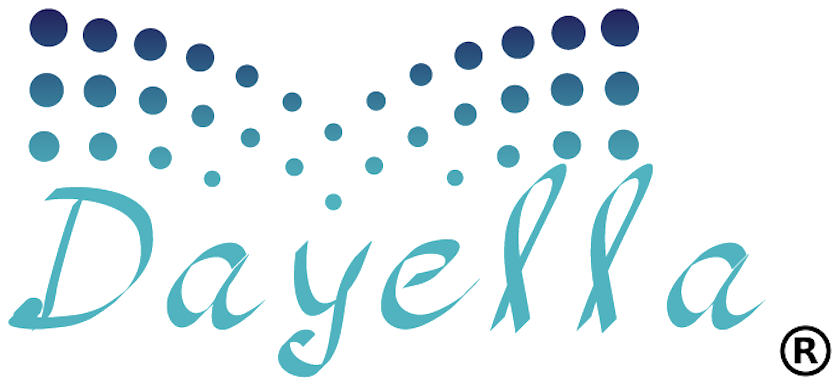IT’S HARD TO IMAGINE THAT JUST A FEW DECADES AGO, MARKETERS ONLY HAD TO DECIDE BETWEEN PRINT, TV OR RADIO.
Marketers today face a staggering number of options when it comes to selecting which marketing channels will comprise their marketing mix.
There are an estimated 120+ content delivery and marketing channels right now. As exciting as that may be, it can also lead to marketing paralysis.
How can I know which channels will work and which won’t? What will be most cost-effective, and how much budget do I need to allocate to each channel? Which ones will work best together to reach my target audiences?
Not to mention, choosing your brand’s channels is a high-stakes situation. Get it right and you will reap the rewards of reaching your target audience with your value proposition. Get it wrong and you will waste time and money chasing a market that isn’t there.
The good news is that creating your marketing mix is not guesswork. By collaborating with the right marketing partner, you can develop a comprehensive, multi-channel plan designed to drive unified demand-generation campaigns for your business.
THE MARKETING CHANNEL LANDSCAPE
Print, radio and television were the stalwarts of the past, but two factors have drastically changed the marketing channel landscape.
One, the digital transformation over the last two decades has resulted in dozens of new marketing channels each year, from apps and chatbots to social media influencers, smart TV ads and now, voice search.
Two, more people – especially younger generations – distrust traditional media and prefer hearing from brands via alternative methods like social media, video or word-of-mouth.
Today, the crowded field of marketing channels is broken up into two major divisions:
- Digital marketing: website, content marketing, social media (organic and paid), email marketing, SEO, PPC, online advertising, etc.
- Offline (traditional) marketing: print collateral (brochures, annual reports, sales playbook), events, public relations, speaker engagements, print advertising
Among online and offline channels, there are also “core” channels that all businesses need versus more experimental channels that may be specific to your brand or industry.
CHOOSING CORE VS. EXPERIMENTAL CHANNELS
We all know the essential marketing channels needed to perform basic “blocking and tackling” – website, social media, email marketing, SEO, advertising, etc.
But while these core channels may be enough to function, Dayella Limited isn’t interested in helping brands merely get by. We strive to help our clients thrive and uncover new marketing opportunities.
When creating a marketing mix, we not only incorporate the essential channels, but will also select industry-specific channels and even some more experimental ones. While the value of a channel like a chatbot or webinar may be less understood than a web site, these unique tactics can often reap unexpected rewards.
One of our clients, a publicly traded life sciences innovator, selected Dayella Limited to launch its new product line to consumer markets. Our marketing mix included core consumer channels like a web site, Google pay-per-click and display ads, blogging and social media. But, as part of our content strategy, we wanted to elicit the networking and goodwill of other audiences such as nonprofit organizations that would accelerate awareness across a heavily vested advocate community of more than 4,000 professionals.
By featuring major nonprofits, we were able to exponentially increase our organic reach and kick start our social media programs while still optimizing for paid search. We sourced a database of nonprofit leaders and launched a sequenced outbound campaign that included e-mail marketing and LinkedIn Messaging. These two tactics increased awareness among key opinion leaders, received hundreds of interactions, and led to hundreds of LinkedIn connections with KOLs.
BALANCING ONLINE VS. OFFLINE CHANNELS
Digital channels tend to take the spotlight these days, but they often work best in tandem with offline channels. Together, they can amplify marketing effectiveness and create a simple, unified experience for customers at multiple touchpoints.
However, it’s easy for these channels to get out of balance. Perhaps you sink most of your budget into digital marketing, and there is little left for offline initiatives like events, public relations or thought leadership campaigns.
Another common situation is that businesses hire one external agency to handle digital and one or more agencies to handle other initiatives, like public relations, branding, print collateral or event management.
While it may seem intuitive to separate work by agency, using a full-service marketing+tech agency like Dayella Limited to develop and drive all your marketing initiatives can deliver unparalleled value.
At Dayella Limited, we take a channel-agnostic approach with our clients. Our team includes experts in all areas of marketing, so we don’t push a specific channel strategy. Whereas a PR agency will sell you PR, or a digital marketing agency will sell you on digital, our team is focused on developing a holistic, multi-touch strategy with the right combination of channels to match your unique business and goals.
There is no “cookie-cutter” approach with Dayella Limited. We create a unique marketing mix for clients based on their industry, audiences and resources. Our approach often blends multiple online and offline channels to reach consumers at different stages of the buyer journey.
For instance, we worked with a biotech company as it launched a new surgical technique to help cancer survivors. The company came to Dayella Limited for assistance in launching digital marketing efforts to reach potential patients in several geo-targeted areas across the U.S. Following an in-depth Discovery Process though, we discovered they really needed a multi-faceted program that combined online and offline channels to reach the target markets.
Our comprehensive digital marketing strategy included content, social, SEO, website, email marketing, Google and Facebook advertising, and webinars. In order to maximize impact in geotargeted markets, our strategy also included offline marketing like localized press releases, press conferences, and in-office promotional materials for surgeons offering the new technique. These traditional marketing initiatives help generate more interest in the new technique and drive social and web traffic.
FINDING THE RIGHT CHANNELS FOR YOUR BRAND
Although we mentioned earlier that one issue is not trying anything new, there is an opposite danger: spreading yourself too thin. If you use too many channels or are always trying to incorporate the latest trends into your mix, you likely can’t put enough budget into each channel to be effective.
This can often lead to a vicious cycle.
Your marketing isn’t working, so the budget is cut, making it less likely to work. The result can be an almost completely ineffective marketing function.
This is where guidance from a marketing+tech agency can be extraordinarily helpful. We can sift through the crowded marketing landscape to find the best marketing mix for your business. We know which new channels can actually help your business and which fads will quickly fade.
We also put the systems and tools in place to measure each marketing channel. Measurement is key to an effective marketing mix. Collecting data from all your channels will allow you to know what’s working and what’s not. Equally important, it will help you attribute results to the correct channel. Initially, some channels like sales calls, for instance, may seem like the most effective strategy, but it’s actually social media where people are learning about your business.
Understanding which channels are working and how they are working together will lead to a refined marketing channel strategy that will allow your team to create meaningful interactions with your target audience and effectively execute marketing campaigns.

Richard Choi

Growth Audit
Keywords
- #content
- #digital transformation
- #channels
- #business
- #marketing mix
- #multi-channel
- #martech
- #marketing
- #growth


